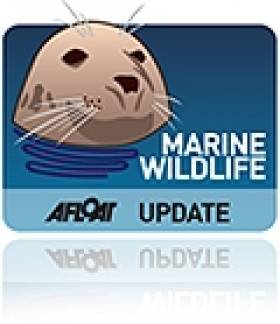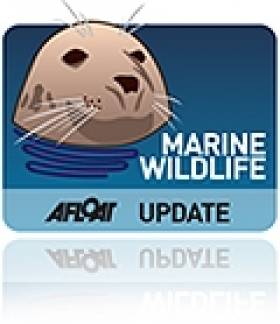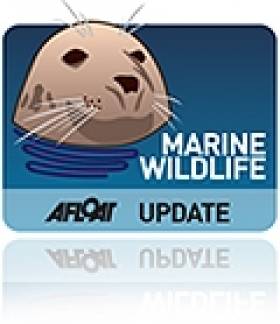Displaying items by tag: harbour porpoise
#MarineWildlife - New marine protections for Northern Ireland's waters could provide a further sanctuary for our smallest marine mammal, the harbour porpoise.
As the Belfast Telegraph reports, the proposed Marine Conservation Zone (MCZ) for the area between Belfast Lough and Carlingford Lough would join the Causeway Coast zone protected in 2012.
The news comes some months after the European Commission put pressure on Westminster to designate more protected areas for the smallest of Ireland's cetaceans, whose swimming grounds are being encroached by offshore wind farm development.
And the new proposals for Northern Irish waters also include protections for important seabird colonies as well as an area of seagrass that's vital to local biodiversity.
But the overall scale of the UK's MCZ plans, reduced from more than 100 proposed zones to a total of 50 over the past two years, has been criticised by conservation groups for betraying a 'lack of ambition'.
The Belfast Telegraph has more on the story HERE.
Harbour Porpoises Get Protection With New NI Marine Zones
#MARINE WILDLIFE - Protection for harbour porpoise off the north coast of Northern Ireland has been assured by the creation of two new areas of marine protection, as BBC News reports.
The new Special Areas of Conservation off Co Antrim encompass the sea and seabed surrounding the Maidens in the North Channel off Larne - protecting reefs and grey seals - and spots adjacent to the Giant's Causeway and Portrush Skerries in the north of the county.
Both areas are also considered of great importance to harbour porpoises, and according to Environment Minister Alex Attwood, the designation "comfirms that their numbers are significant throughout the year".
He added: "I hope this encourages people to visit the area to get a glimpse of these beautiful animals."
Campaigners are hoping for further coastal protections to be guaranteed by the Marine Bill, which will be debated at Stormont ths Autumn.
As reported earlier this year on Afloat.ie, the Northern Ireland Marine Task Force brought togethter politicians, environmentalists, fishermen and wind farm developers to ensure the new bill will deliver for all sea users.
IWDG Confirms 175 Sightings in June
The Irish Whale and Dolphin Group (IWDG) has validated 175 large marine wildlife sighting records for June 2011.
The most commonly recorded species were bottlenose dolphins, accounting for 28 per cent of all sightings, followed by harbour porpoise (25%), minke whales (13.6%), common dolphins (9%) and basking sharks (5%).
Other sightings included Risso's dolphins, killer whales, fin whales, humpback whales and pilot whales.
"This is the second consecutive year that basking shark sightings have declined, with a 36 per cent drop in sightings on the same period in 2010," said IWDG sightings co-ordinator Pádraig Whooley.
The total numbers compare with 270 sightings in June 2010. "The 35 per cent drop in sightings reflects the vagaries of Irish summers," Whooley added.
He also noted that this year marks the first time that the biggest cluster of sightings was off the coast of Co Dublin.
The IWDG has more on the story HERE.

































































